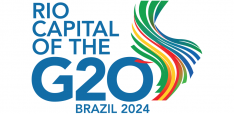The global elite: unprecedented power?
The “global elite” are increasingly referred to as a distinct class in contemporary society. The likes of Bill Gates, George Soros and Angelina Jolie are often offered as examples of wealthy private citizens who exercise enviable capacity to influence world politics. The high visibility of this exclusive group, their disposable resources and their access to other powerful networks has led some pundits to claim that their potential to shape global policy is unprecedented.
But how is this new global elite different from the transnational elites of generations which have preceded it? And in what ways do they have the potential to be powerful political agents?
Transnational classes have been important participants in world politics throughout history. Diplomats, merchants and missionaries from India for instance are credited with facilitating the spread of Buddhism across Southeast Asia. Traders operating under royal charters such as the Hudson’s Bay Company and the East India Company played a transformative role in British colonial history. Artists and academics have spread aesthetics and ideas; we can find western style palaces in China thanks to the influence of Giuseppe Castiglione and likewise Chinese architecture in Japan.
From this perspective, today’s global elite are a natural extension of earlier generations who were driven by opportunities and had the knowledge and resources to exploit them. Nevertheless, there are also some ways in which they can be seen as unique.
In historical terms there are now far more global institutions which both introduce new types of transnational decision-makers and provide spaces for elite elbow-rubbing. The rise of institutions such as the World Bank and the IMF and MNCs has paved the way for epistemic communities, notably economists to join the dens of power. And global parties like the Bilderberg meetings and the World Economic Forum provide them with more reason to spend time together. Consequently, while the existence of a global elite is not so much of surprise, its newest members and the capacity for them to intermingle suggest that elite networks are cover more geographies and professions than they have in the past.
This leads to the question of how influential the buffed up network of global elite has become. Although commentators sometimes suggest that transnational elites can wield more power than nation states, there is not clear evidence of how they exercise this power in important areas like policy and regulation. Certainly, they are powerful lobbies and have considerable influence in areas like taxation. The global elite are after all in a better position to exploit national differences in tax rules which weakens states by diminishing their revenues. The global elite also have a better time of making policy issues salient. For example, subsequent to Warren Buffett’s article in the New York Times, Obama introduced a deficit reduction plan which he coined the ‘Buffett Rule’.
While such interferences in national politics indicate ways in which the global elite can undermine state institutions and reach decision makers in ways that mere mortals cannot, it would be a stretch to conclude that the global elite are replacing states in a meaningful way.
Perhaps the best evidence of the elite rush to fill the ‘governance gap’ is that of the ‘new’ philanthropy, the phenomenon of foundations which are designed like businesses to solve transnational social and environmental problems. Addressing issues like access to medicine, environmental degradation and agricultural efficiency, the line between foundations such as the Bill and Melinda Gates Foundation or Virgin Unite can be blurred between their public counterparts like the UK Department for International Development. However, apart from an increased ‘business’ focus and transnational dimension, comparable philanthropic organizations such as the Rockefeller and Carnegie Foundations have had a long tradition, particularly in the United States.
In short, while there is clearly a global superclass who have disproportionate influence in political arenas, their characteristics and the ways in which they exercise this power are only incrementally different from their predecessors.
